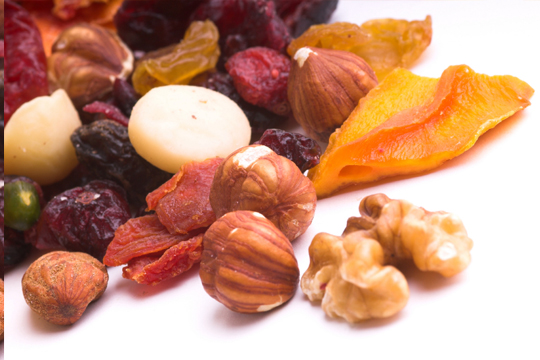Your Employee Assistance Program is a support service that can help you take the first step toward change.
Maximize Your Energy and Stay Healthy
If you're feeling less than energetic, you may not need to look any farther than your eating habits. How and what you eat, among other factors, determines how energetic you feel.  Being dehydrated, going too long between meals or eating the wrong combination of foods may all drain your energy reserves.
Being dehydrated, going too long between meals or eating the wrong combination of foods may all drain your energy reserves.
Here are some tips to ensure you're eating properly to maximize your energy levels:
Breakfast is the most important meal of the day. Having a proper breakfast has many advantages. Breakfast-eaters tend to have higher metabolisms, fewer cravings, eat less at night, and have higher intakes of vitamin C and iron. Breakfast can also improve concentration. Try to eat within one to two hours of getting up each morning.
Here are some quick and healthy breakfast ideas:
Timing is everything. Eat regularly, every three to six hours when hungry. Plan healthy snacks for between meals to keep you feeling full and satisfied. Sweets or caffeine on an empty stomach can send your blood sugar on a roller coaster ride, giving you immediate energy followed by a feeling of low energy.
Feed your need for energy with healthy snacks. Carbohydrates usually satisfy your appetite for about two hours. They are ideal as snacks to hold you over until a meal. Here are some suggested carbohydrate snacks:
Keep yourself hydrated with water, juice, milk, non-caffeinated herbal teas, and other non-caffeinated, non-alcoholic beverages. Six to eight glasses of water a day is recommended; keep a thermos jug at your desk or in the fridge and add lime, lemon or cucumber slices for a refreshing glass anytime.
If your energy levels are slipping, consider the healthy eating and hydration tips outlined in this article. Your doctor or nutritionist will be able to provide you with a more detailed plan, catered to your specific needs.
 Being dehydrated, going too long between meals or eating the wrong combination of foods may all drain your energy reserves.
Being dehydrated, going too long between meals or eating the wrong combination of foods may all drain your energy reserves.Here are some tips to ensure you're eating properly to maximize your energy levels:
Breakfast is the most important meal of the day. Having a proper breakfast has many advantages. Breakfast-eaters tend to have higher metabolisms, fewer cravings, eat less at night, and have higher intakes of vitamin C and iron. Breakfast can also improve concentration. Try to eat within one to two hours of getting up each morning.
Here are some quick and healthy breakfast ideas:
- Cereal with milk and fruit
- Whole-wheat toast with peanut butter and fruit
- Cottage cheese with fruit and bagel
- Bagel with cheese and tomato
- Egg with English muffin and fruit
Timing is everything. Eat regularly, every three to six hours when hungry. Plan healthy snacks for between meals to keep you feeling full and satisfied. Sweets or caffeine on an empty stomach can send your blood sugar on a roller coaster ride, giving you immediate energy followed by a feeling of low energy.
Feed your need for energy with healthy snacks. Carbohydrates usually satisfy your appetite for about two hours. They are ideal as snacks to hold you over until a meal. Here are some suggested carbohydrate snacks:
- Low-fat crackers and cookies
- Cereals that don't need milk
- Homemade trail mix (pretzels, cereal, dried fruit)
- Fruit or diluted fruit juice
- Muffins (small, low-fat ones)
- Popcorn (light microwave or air popped)
- Chocolate milk
- Veggies and hummus
- Cheese or cheese string and low-fat crackers
- Dried cereal and raisins
- Low-fat muffin and slice of cheese
- Yogurt with nuts/seeds or high fiber cereal
- Sandwiches/subs—turkey, chicken, lean ham
- Broth-based soups—vegetable, split pea, bean, barley
- Stir fry—shrimp, chicken with steamed rice
- Vegetarian pizza
- Pasta with tomato sauce
- Bean burrito
- Hummus in pita
- Teriyaki dishes made with little oil
Keep yourself hydrated with water, juice, milk, non-caffeinated herbal teas, and other non-caffeinated, non-alcoholic beverages. Six to eight glasses of water a day is recommended; keep a thermos jug at your desk or in the fridge and add lime, lemon or cucumber slices for a refreshing glass anytime.
If your energy levels are slipping, consider the healthy eating and hydration tips outlined in this article. Your doctor or nutritionist will be able to provide you with a more detailed plan, catered to your specific needs.
© 2026 LifeWorks (US) Ltd.
